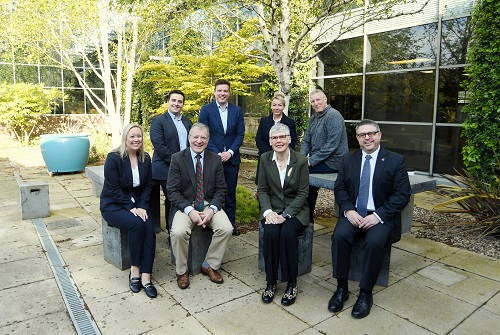“Combined with market forces such as the war in Ukraine, high inflation rates, and rising agricultural costs, farming businesses face a challenging climate and are having to look at new ways to bridge the financial ‘gap’ that is forming.
“But the rural sector is adept at adapting and embracing change and is currently seeing speculative investment funding coming in with an eye on carbon sequestration opportunities, as well as significant changes to the basis for government support, with a growing focus on eco-system services such as biodiversity net gain. Accessing these new funding opportunities is going to be key to supplementing the returns from food production. Indeed, farmers are increasingly becoming managers of a mixed portfolio of land uses.”
Exclusive insights
Held at Lapstone Barn in the Cotswolds, Lodders’ Rural Conference attracted more than 100 delegates from across the agricultural sector including farmers, land agents, rural businesses, and accountants.
“We brought together a range of speakers from across the farming industry to discuss some of the ongoing changes in the agricultural world, as well as some of the key new opportunities for generating income.” James said.
The speakers included:
- Manjeet Kumari La, head of engagement at Defra, who explained the current funding and incentives available to farmers as part of the Environmental Land Management Schemes. She spoke about how Defra is changing the way it works with farmers, by co-designing and testing schemes with them to ensure they work, with the ultimate aim of making the system more fair, flexible, and workable. She also explained how farmers can benefit from the Future Farming Resilience Fund (FFRF), the Sustainable Farming Incentive (SFI), and the Rural England Prosperity Fund.
- Alex Robinson, co-founder of Nature Capital and director at Zulu Forest Sciences and an experienced farmer, discussed how landowners can establish a natural capital baseline, in order to identify opportunities and unlock value from these assets. He emphasised the importance of viewing farming through a natural capital lens to maximise the potential of a farm’s land and assets and those of the regional landscape as a whole.
- Richard Smith, managing director of Daylesford Organic/JCB Farms shared the story of the growth and the development of the farming business over the last 35 years, as well as his personal journey to becoming farms director. Tasked with building a brand around a farming business that can be trusted, Richard has spearheaded the traditional, organic, and environmentally friendly approach to farming that Daylesford is now renowned for.
- Tim Field, facilitator of the North East Cotswolds Farmer Cluster and founder and CEO of Carbon Quester, discussed how landowners can work collectively to deliver better environmental outputs and to secure enhanced reward in doing so. The new cluster, which already includes 43,000 hectares across 140 farms and estates, aims to lead landscape-scale regeneration of the farmland environment and local food networks in the North East Cotswolds through collaboration and knowledge exchange.
On-the-ground support
“Our Agricultural and Landed Estates team at Lodders continues to help clients with the ‘usual’ matters, such as land dealing, succession planning and partnership arrangements.” James explained.
“However, times are changing, and if farming businesses are to thrive, then it is hard to see how some engagement with carbon sequestration, net zero, and biodiversity can be avoided if access to funding is to be achieved or merely due to supply chain pressures.
“The range of legal support the firm offers to the rural sector is always growing and we have seen an increasing demand for help with land development and renewable schemes, and more recently with biodiversity net gain projects, as alternative sources of funding are sought out.”
Lodders is a premier law firm in Stratford upon Avon, Cheltenham, Henley in Arden, and Birmingham. Founded more than 235 years ago, the firm offers expert legal advice across a range of legal services including private client, commercial law, real estate and family law.
Lodders’ top-ranking Agricultural and Landed Estates team is one of the largest in the region and is actively involved in the rural sector with representation in agricultural societies, rural charities, and Common Land associations.
For more information, visit: www.lodders.co.uk
































